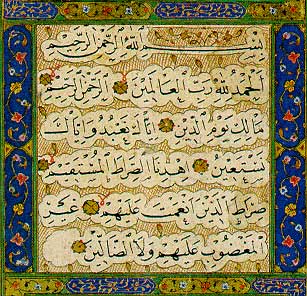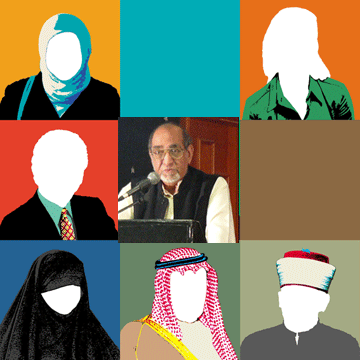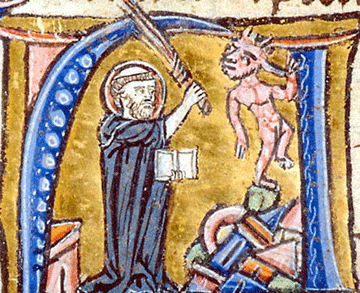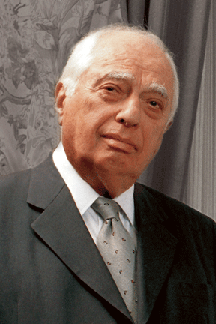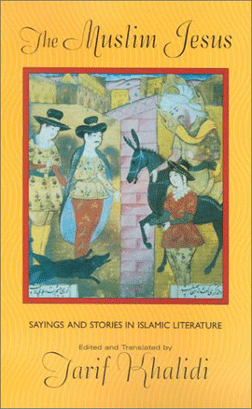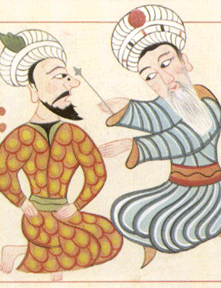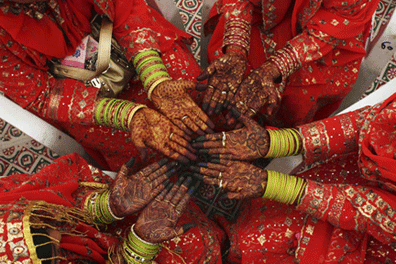
[Webshaykh’s Note: Revisionism is found in all religions. I recently came across a blog posting that seeks to restore the marital status of Muhammad to one wife at a time, although it appears to be more an attack on at-Tabari, Ibn Ishaq and Ibn Hisham. I post the commentary not because I agree with it, but as an example of the variety of views held by Muslims in representing the Prophet Muhammad.]
THE PROPHET (S) HAD ONLY ONE WIFE AT A TIME by Dr. Shabbir Ahmed, The Quran as it Explains Itself, August 30th, 2009
THE PROPHET (S) HAD ONLY ONE WIFE AT A TIME
MARRIAGE WITH HAZRAT AYESHA 622 CE:
Contrary to the Imamist propaganda, the exalted Prophet had no more than one wife at a time. And Hazrat Ayesha was a sister, not daughter of Hazrat Abu Bakr. The Prophet (S) did not marry for three years after Hazrat Khadijah’s demise in Makkah three years before Hijrah. Hazrat Ayesha was the widow of a martyr, Saleh bin Saleh Al-’Ataib. She was 48 years old at the time of marriage to the exalted Prophet. Sahaba Kiraam including Hazrat Abu Bakr strongly recommended that the Prophet (S) and she got into the solemn union of marriage. The blessed wedding took place in 622 CE when Muhammad (S) was 52 years old. Kitab-e-Dalail-e-Nabawwut Syedna Muhammad (S), by Abdul Jabbar Fatimi, written 150 years before Tabari, the first ever ‘canonized’ historian. Azwaaj-in-Nabi wal-Ashaab, by Sheikh Hammad bin Hakam. The rest is nothing but slanderous imagination of the Zoroastrian “Imam†Tabari and the Jewish biographer Ibn Ishaq and his Parsi follower Ibn Hisham. Continue reading The Wives (make that Wife) of the Prophet
